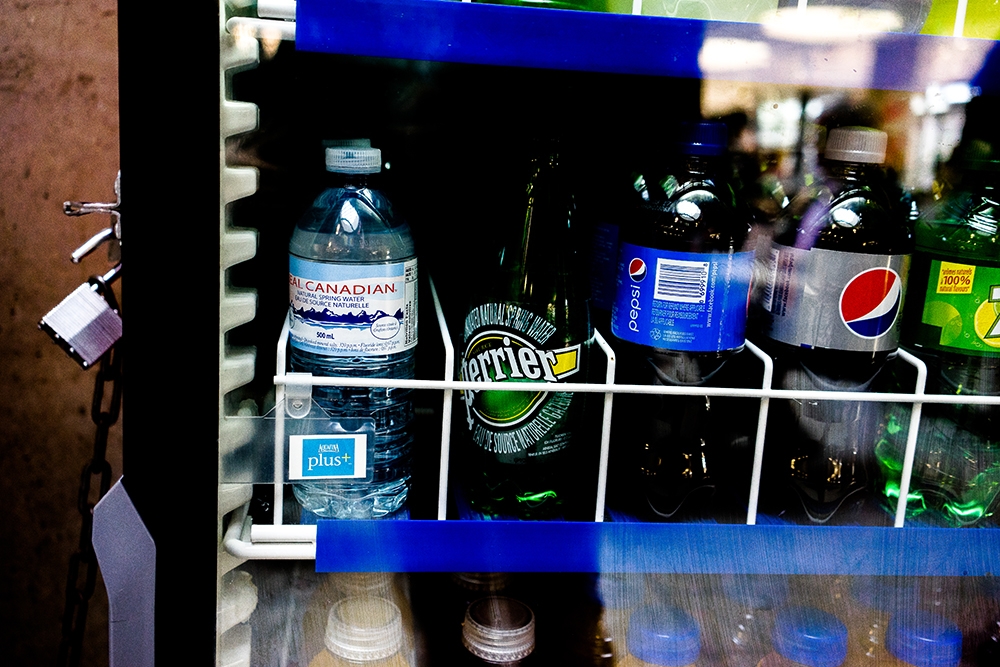Jonny Chard | News Editor — Michael Zusev | Contributor
Featured image: Yogen Früz is one of the few vendors to continue the sale of plastic bottles. | Michael Zusev
York’s bottled-water ban has been heralded as a success by many in the York community, but there still remain numerous questions over the policy and its enforcement.
Student Centre vendor Yogen Früz continues to sell plastic water bottles.
The ban was proposed and signed in April 2012 by York’s President and Vice-Chancellor Mamdouh Shoukri, followed by the president of the YFS in support of the “Take Back The Tap” campaign in schools across North America.
The bottled-water phase-out initiative began in September 2015, banning all water bottle sales campus-wide.
Some vendors have simply resorted to selling alternatives, such as flavoured or carbonated water, which has made some people query the ban’s effectiveness and how far it should go.
“I think [the ban] needs to, in terms of environmental change, be more than just water bottles,” says Daniel Voloshin, fourth-year kinesiology student.
Despite the abundance of pop, juice and other bottled goods, many students generally oppose further bans.
“They can’t really ban that kind of stuff because then you are taking away people’s right to have [access to] them,” says education student Hana Soldin.
York has adopted a number of other environmentally friendly policies that saw it rank as the 15th-greenest university campus in the world in 2013, according to UI GreenMetric, a worldwide university ranking system.
“Climate change is a much bigger issue that requires many more difficult interventions than a bottled water ban. But York is tackling this as well,” says Martin Bunch, chair of the President’s Sustainability Council.
York has introduced numerous energy management and sustainability programs, including electric car charging stations and the drive towards more environmentally friendly building renovations.
Mahsa Hosseini, a third-year psychology student, feels that York’s current measures are sending a progressive message to the student community.
“Because this is a new generation of students, [it’s good] that everyone is cautious about the environmental use of plastic water bottles,” she states.
Despite the positive aspects of the water bottle ban, an issue that has garnered much attention is the availability of the alternative—water refilling stations.
Students such as Soldin find it hard to locate the drinking fountains and refill stations, despite there being over 70 water refilling stations and over 200 water fountains. Some feel that a lack of orientation for students, particular in first year, contributes to the lack of awareness of refilling locations.
“Once you know your way around, especially a big campus like York, [water fountains] become easier to find,” highlights Sara D’Ambrosio, a sociology student.
YFS continues to distribute free reusable bottles for students through colleges and societies and, according to Bunch, York is continually looking for ways to improve the ecological functioning of its campuses.
“York is currently developing a Sustainability Strategic Plan which will set out the long-term sustainability vision and targets,” he concludes.
Rawan Habib, vice-president campaigns and advocacy at YFS, has also pledged that the YFS will continue to push the distribution of reusable water bottles and will call for the creation of further refilling stations.
Yogen Früz was not available for comment at the time of publication.
Update (20/01/17): Yogen Früz has removed water bottles from their store since the time of publication.


